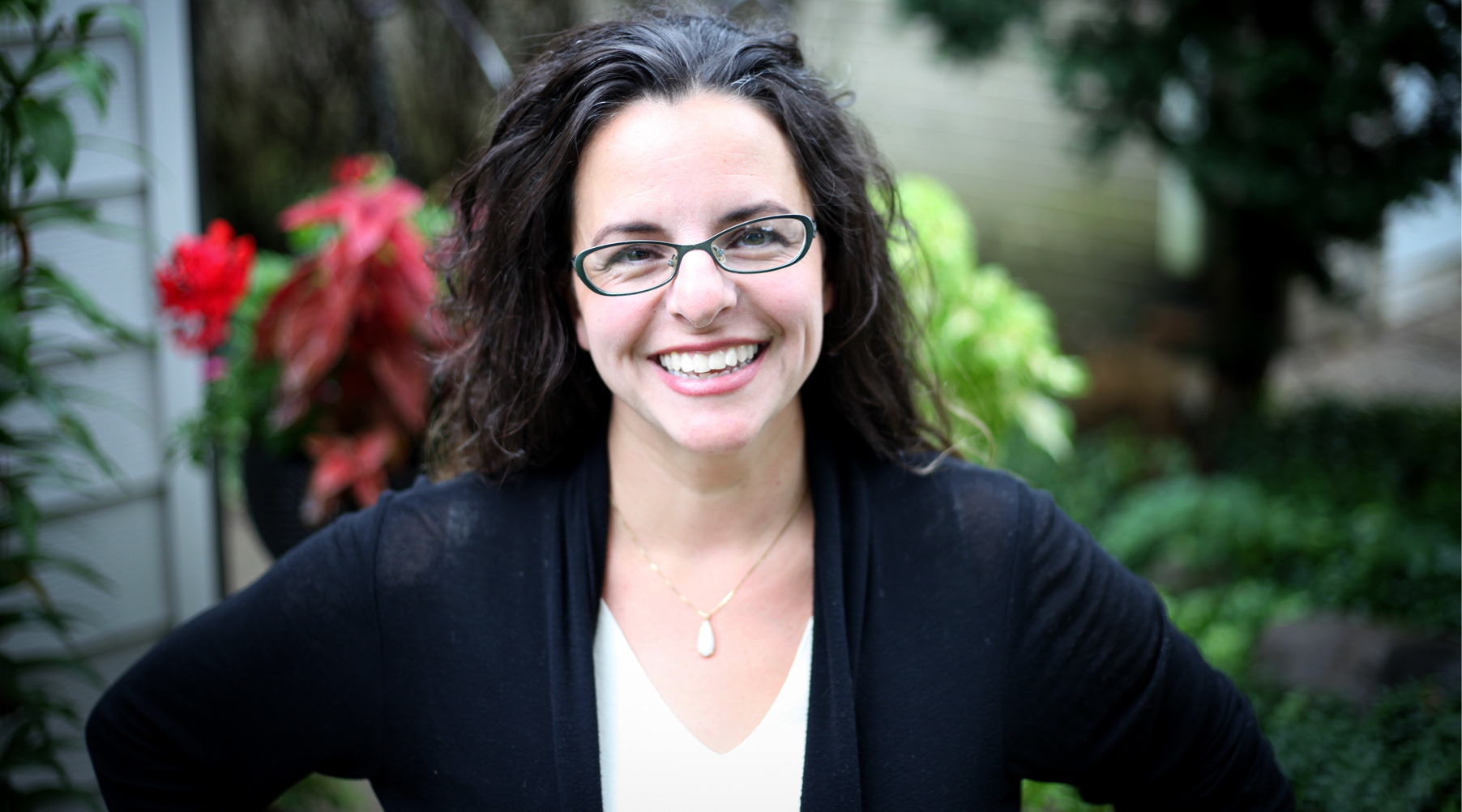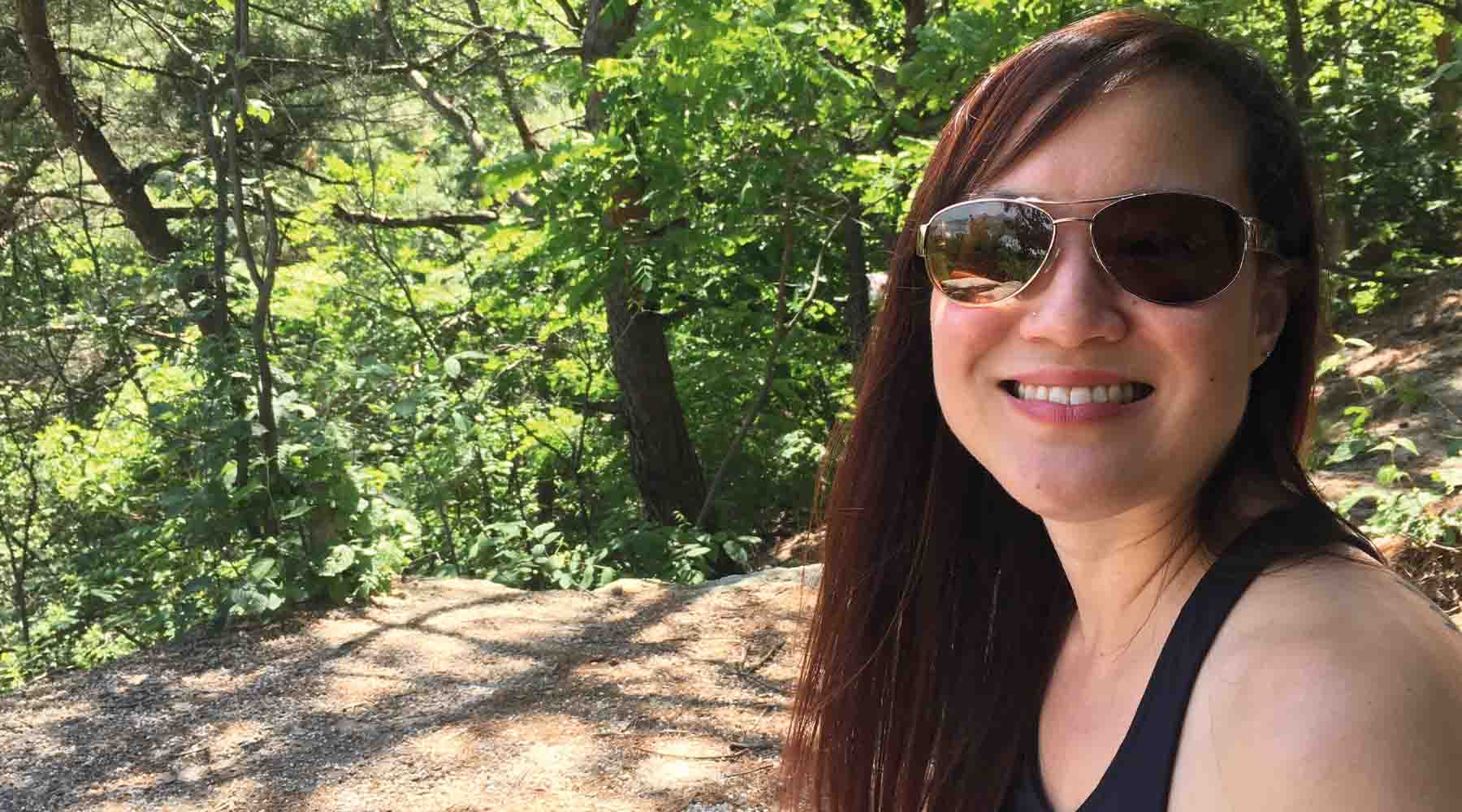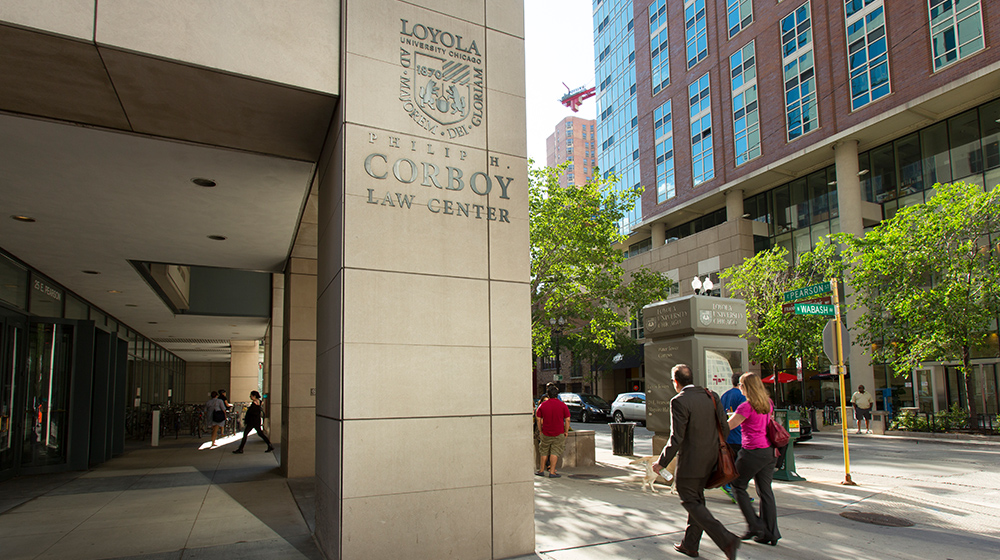Community - Faculty - Sarah Diaz Profile

Loyola selected Diaz as the winner of the 2023 Kolvenbach Award for Engaged Teaching, citing her record of care and attention to the educational and transitional needs of new students.
Faculty Profile Sarah Diaz
Fighting for Families
Sarah Diaz advocates for humane immigration policy
In her youth, Sarah Diaz’s visits to family in Mexico opened her eyes to economic hardship and the struggles of ordinary people trying to get by in a developing country.
“Witnessing human suffering shaped me; it was formative in helping me think about what social justice looks like and how I might impact people’s lives for the better,” says Diaz, a Loyola University Chicago School of Law lecturer and associate director of the Center for the Human Rights of Children (CHRC).
She went on to earn a law degree from DePaul University and a master’s in international law from Northwestern University, focusing on immigration law and human rights for children and migrants at the local, state, and international levels. Then, in the spring of 2018, came a galvanizing moment in Diaz’s career.
In the span of three months, thousands of migrant children were taken from their parents at the Texas-Mexico border. The U.S. Department of Justice’s “zero tolerance” policy criminally charged parents for entering the United States without permission and sent their children to 100 Office of Resettlement shelters around the country. Today, hundreds of children remain separated from their families, as parents’ whereabouts are unknown. Many of the families were seeking asylum from Central American nations ravaged by gang violence.
Diaz sprang into action.
“Family separation, as it was carried out, fits the legal definition of a crime against humanity and is prosecutable by the International Criminal Court,” she says.
In December 2022, Diaz and Loyola law student Jenny Lee published a report that calls on the global legal community to resist family separation as legitimate immigration policy. Titled Zero Tolerance: Atrocity Crimes Against Migrant Children and Families in the United States: An Accountability Framework for Family Separation, the report criticized the lack of coordination between federal agencies and highlighted medical community appraisals that the children’s treatment was “state-sanctioned child abuse and a form of torture.”
Diaz says the report is a rare example of a law school giving students an opportunity to engage in the practice of international criminal law.
“Family separation, as it was carried out, fits the legal definition of a crime against humanity and is prosecutable by the International Criminal Court.”
This fall, Diaz will file a communication with the Office of the Prosecutor of the International Criminal Court to request an investigation into family separations. A separate article, “Parent-Child Border Separations Violate International Law: Why it matters and what can be done to protect children and families,” was awarded the Charles Cheney Hide Award in Public International Law.
At the CHRC, Diaz stresses interdisciplinary solutions to complex questions. Students harness faculty expertise across campus, using psychology and anthropology research, for example, to back their arguments for change.
“What we’re trying to do is make sure that the immigration system is able to develop best practices for working with children, who are treated as adults in miniature,” she says. “Over the last few years, we’ve developed sustained partnerships with national and local legal service providers to advance the CHRC’s research-informed advocacy.” –Andrew Faught (April 2023)
Learn More

Center for the Human Rights of Children (CHRC)
The CHRC applies a human-rights approach to the problems affecting children, reaffirming the recognition of the inherent dignity and of the equal and inalienable rights of all members of the human family, including children, is the foundation of freedom, justice and peace in the world.
Read More
Working to serve others
Jenny Lee is many things—a former professor, the daughter of immigrants, a law student—but above all else, she is an advocate. Through her volunteer work with organizations focused on immigration reform and human rights, Lee strives to improve the lives of vulnerable populations.
Read More
JD application process
Ready to get to know us more? We’ve outlined a few short steps for you.
Read MoreIn her youth, Sarah Diaz’s visits to family in Mexico opened her eyes to economic hardship and the struggles of ordinary people trying to get by in a developing country.
“Witnessing human suffering shaped me; it was formative in helping me think about what social justice looks like and how I might impact people’s lives for the better,” says Diaz, a Loyola University Chicago School of Law lecturer and associate director of the Center for the Human Rights of Children (CHRC).
She went on to earn a law degree from DePaul University and a master’s in international law from Northwestern University, focusing on immigration law and human rights for children and migrants at the local, state, and international levels. Then, in the spring of 2018, came a galvanizing moment in Diaz’s career.
In the span of three months, thousands of migrant children were taken from their parents at the Texas-Mexico border. The U.S. Department of Justice’s “zero tolerance” policy criminally charged parents for entering the United States without permission and sent their children to 100 Office of Resettlement shelters around the country. Today, hundreds of children remain separated from their families, as parents’ whereabouts are unknown. Many of the families were seeking asylum from Central American nations ravaged by gang violence.
Diaz sprang into action.
“Family separation, as it was carried out, fits the legal definition of a crime against humanity and is prosecutable by the International Criminal Court,” she says.
In December 2022, Diaz and Loyola law student Jenny Lee published a report that calls on the global legal community to resist family separation as legitimate immigration policy. Titled Zero Tolerance: Atrocity Crimes Against Migrant Children and Families in the United States: An Accountability Framework for Family Separation, the report criticized the lack of coordination between federal agencies and highlighted medical community appraisals that the children’s treatment was “state-sanctioned child abuse and a form of torture.”
Diaz says the report is a rare example of a law school giving students an opportunity to engage in the practice of international criminal law.
“Family separation, as it was carried out, fits the legal definition of a crime against humanity and is prosecutable by the International Criminal Court.”
This fall, Diaz will file a communication with the Office of the Prosecutor of the International Criminal Court to request an investigation into family separations. A separate article, “Parent-Child Border Separations Violate International Law: Why it matters and what can be done to protect children and families,” was awarded the Charles Cheney Hide Award in Public International Law.
At the CHRC, Diaz stresses interdisciplinary solutions to complex questions. Students harness faculty expertise across campus, using psychology and anthropology research, for example, to back their arguments for change.
“What we’re trying to do is make sure that the immigration system is able to develop best practices for working with children, who are treated as adults in miniature,” she says. “Over the last few years, we’ve developed sustained partnerships with national and local legal service providers to advance the CHRC’s research-informed advocacy.” –Andrew Faught (April 2023)
